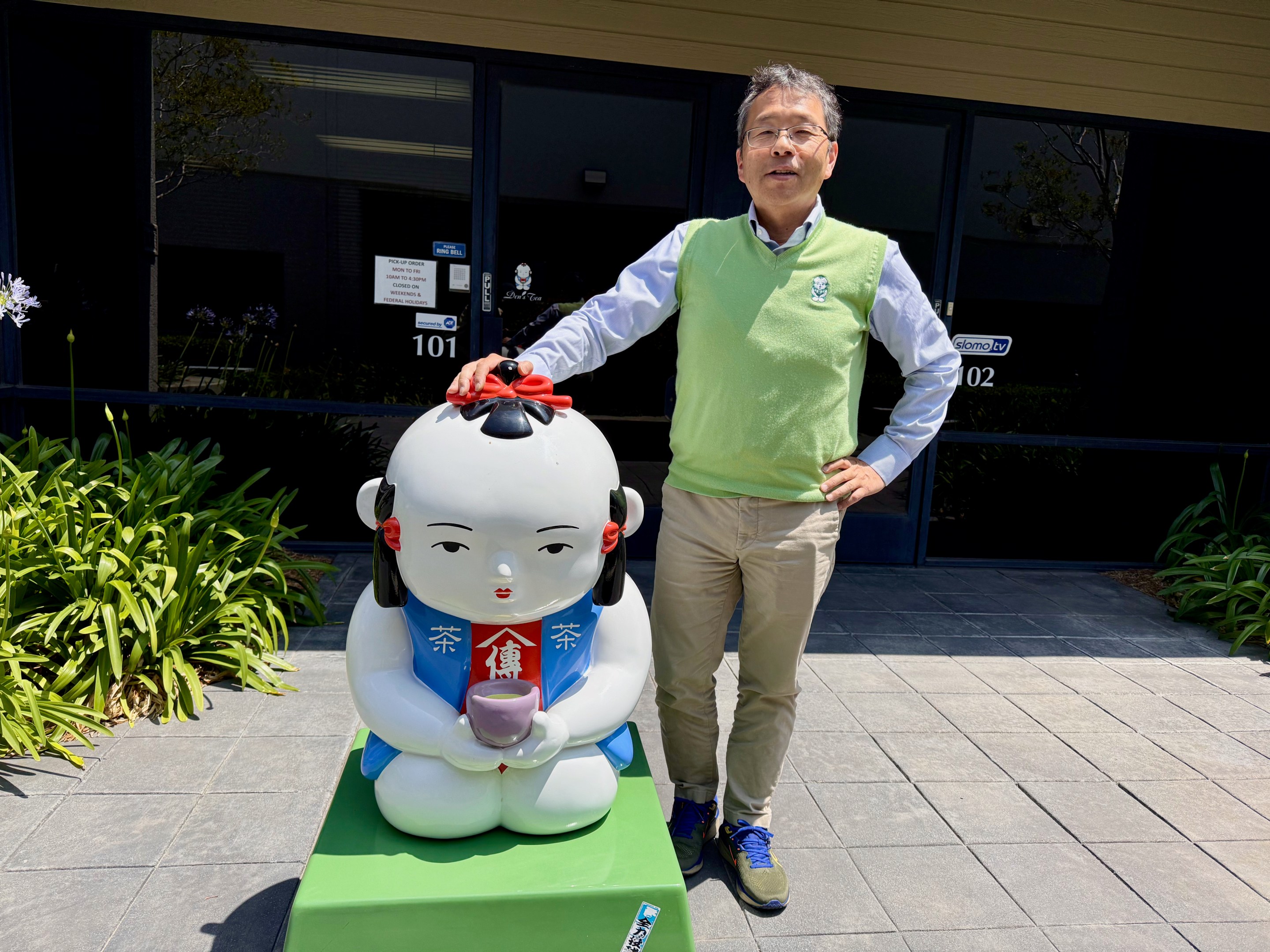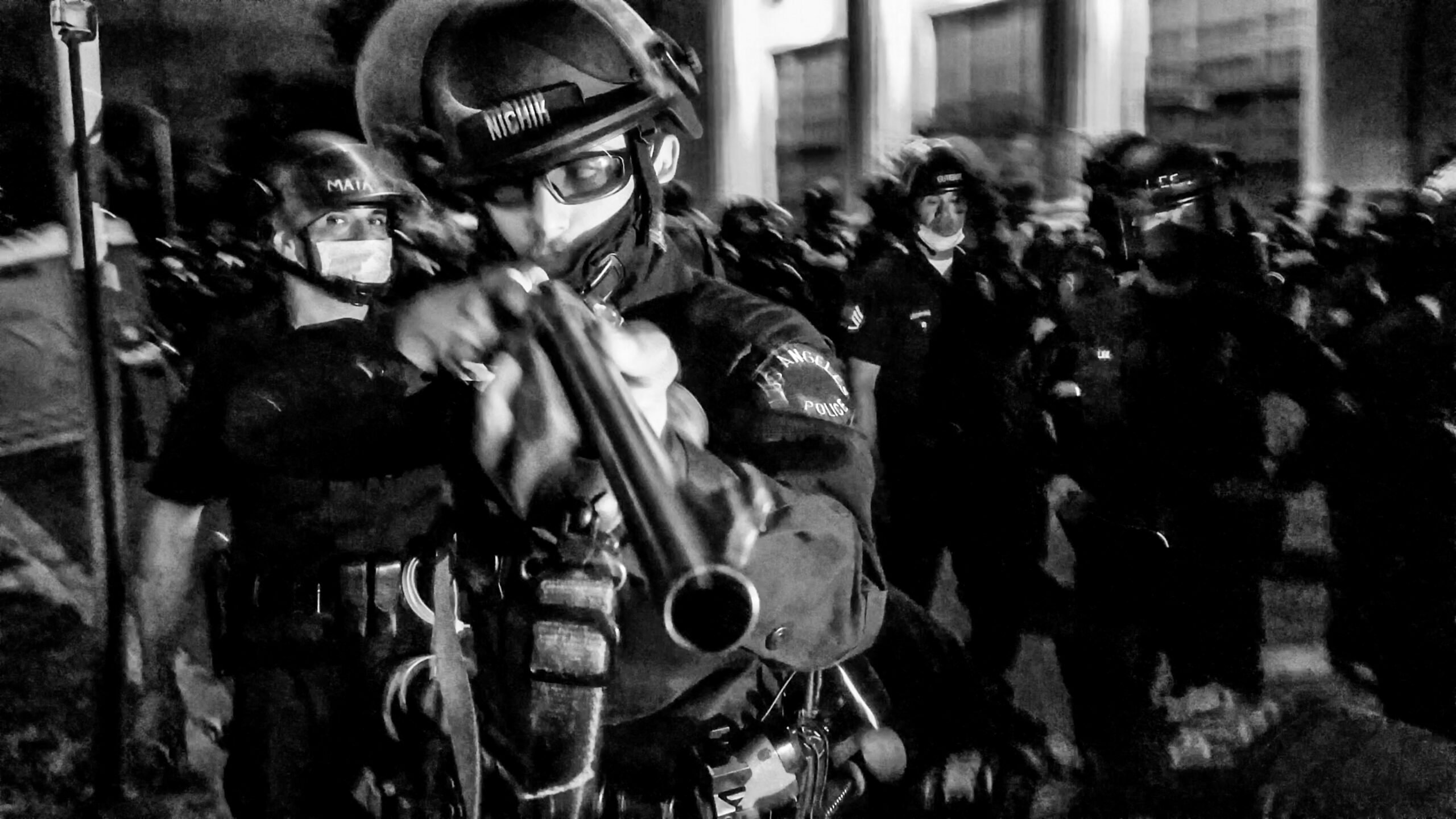Matcha tea is experiencing a surge in popularity in the U.S. right now. So much so that a shortage, due to the specialized stone grinders being unable to grind it quickly enough to meet global demand, is causing the price to spike even further.
For Masanori Den Shirakata, the third-generation owner of Den’s Tea in Torrance, the frothy, alluringly green, caffeinated beverage goes back 100 years, long before it turned into a trend.
At a random refrigerated warehouse, a couple of blocks away from Torrance’s Monkish and Smog City breweries, Den takes us through a matcha “cupping”, a quality-tasting experience, starting from “Organic Premium Restaurant” matcha to the most expensive “Organic Ceremonial” grade.
The latter goes for $126 for a half-pound on Den's website. The more premium ingredients tend to be more buttery, less bitter, and more vibrantly green than the cheaper culinary ingredients used more for desserts or sweetened drinks.
The Shirakata family's tea journey began over 102 years ago. What started as a local tea business has now evolved into a global matcha enterprise, blending traditional Japanese tea culture with the modern American market.
Den Shirakata represents the third generation of tea merchants, carrying forward a tradition that began when his grandfather first recognized the potential of Shizuoka, Japan, as a top-tier tea-producing region. The business now sources tea from other areas too, now.
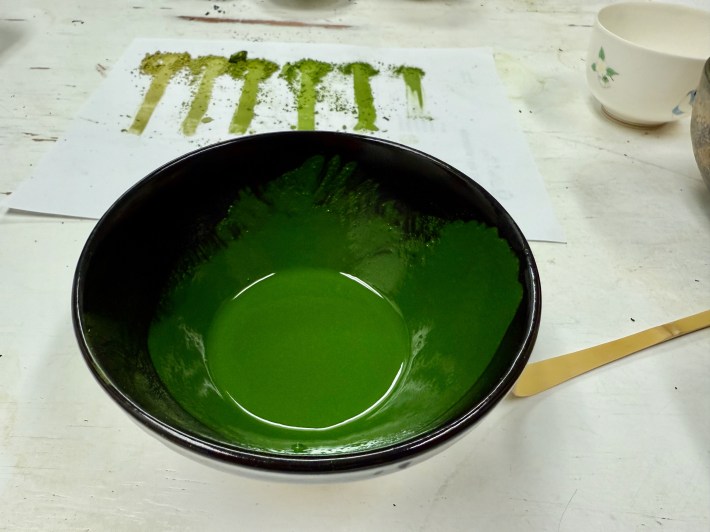
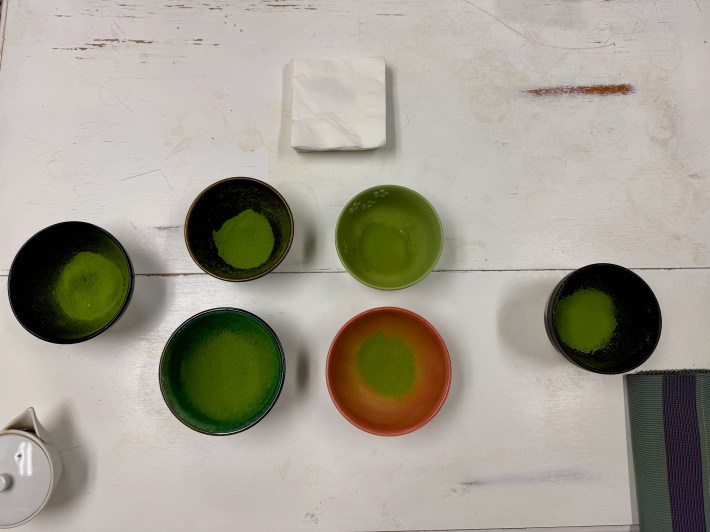
At just 26 years old, Den unexpectedly became the president of his family's tea company after the early passing of his father. Despite not being the traditional first-born heir, he embraced the family business with passion and vision. His journey took an unexpected turn in the late 1990s when he saw an emerging opportunity in the United States.
Den first came to the U.S. in 1987 to study English and marketing, with no big plans for tea. “Back then, I only saw Lipton tea bags here,” he says with a grin.
However, by the late 1990s, he noticed green tea gaining momentum at a U.S. Tea Association event, and thought it might be connected to the increasing popularity of Japanese restaurants. In 2000, he launched Den’s Tea in Torrance, tapping into the South Bay’s community and the growing matcha buzz.
The current matcha market presents both opportunities and challenges. Prices have increased by approximately 20% in just the last year and are expected to continue, driven by surging demand from major retailers and even all the mom-and-pop cafes.
“I saw all these Japanese restaurants and thought there might be an opportunity,” he says.
He nailed it—matcha exports to the U.S. have jumped 70% recently, with matcha dominating green tea shipments. Den’s direct line from Shizuoka keeps his tea fresh and top-notch.
During the tasting, he showed us how he can discern the quality of matcha just by how it feels in his fingers. On average, matcha is at least 10 times finer than AP flour.
“The good stuff gets smoother between your fingers,” he says, showing his hands-on approach.
Matcha's quality is easier to judge than sencha (steamed green tea)—its color and taste stand out.
“You can see and taste the difference,” he notes, leaning on years as a tea instructor in Japan.

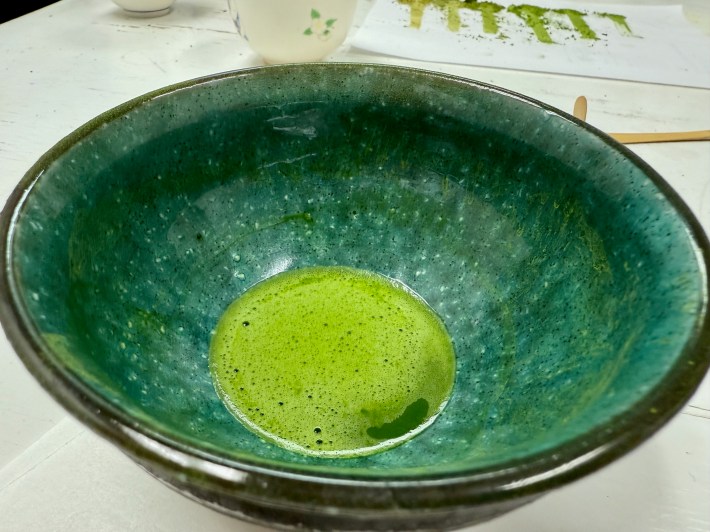
Freshness is everything to him. While some store tea at room temp, Den’s all about cold storage.
“I rented a refrigerated warehouse right away,” he says, keeping tea at zero to five degrees Celsius for that vibrant kick. “We keep prices as fair as we can and quality high using traditional Japanese techniques,” he adds.
Matcha has taken off—Den’s shocked that the U.S. now out-drinks Japan.
“I think the U.S. consumes more matcha than Japan now,” he says.
Demand is so high that prices have increased by 20% over the last year. “Supply’s tight,” he admits, noting some Shizuoka farmers are switching from sencha to matcha.
Den sees room to grow beyond the coasts.
“Inland, matcha’s still new—it’s got potential,” he says. He sticks to the basics: fresh tea, straight from Japan, from someone who knows their craft.
“Check the source and storage,” he advises buyers.
Den’s clear on why Japanese tea beats out others, like Chinese blends. It’s the process—steaming and rolling that pulls out 80% of the tea’s contents in one cup.
“That’s where the health benefits shine,” he says.
The techniques for cultivating and processing matcha in Japan have been refined over hundreds of years, compared to Chinese counterparts who have just jumped on the bandwagon. His matcha is a hit at places like Bristol Farms, Gusto Bread, and other local cafe chains that he’s not allowed to disclose, including one major chain churns out thousands of matcha lattes a day.

He’s still amazed by the shift.
“I used to explain green tea at store demos—now even kids say they love matcha,” he laughs. Customers ask about tea gardens and cultivars, keeping him on his toes.
Den has juggled tradition and growth like a champ. After the family business reached 100 years, he handed over Japan operations to his cousin to focus on the U.S. His son might carry it on, but Den’s chill about it.
“Family businesses have pros and cons,” he says.
The rise of matcha has been particularly transformative for Den's business. When he first started, matcha was a niche product. Now, it accounts for nearly 80% of Japanese tea exports to the United States, with a 30% year-over-year increase.
The current matcha market presents both opportunities and challenges. Prices have increased by approximately 20% in just the last year and are expected to continue, driven by surging demand from major retailers and even all the mom-and-pop cafes.
Den understands that as matcha becomes more popular, maintaining quality becomes increasingly challenging. Nonetheless, he’s grateful for its growth, from its origins with ancient monks to today's influencers.
“Even if they don’t get it, they’re spreading the word,” he says of the hype.
